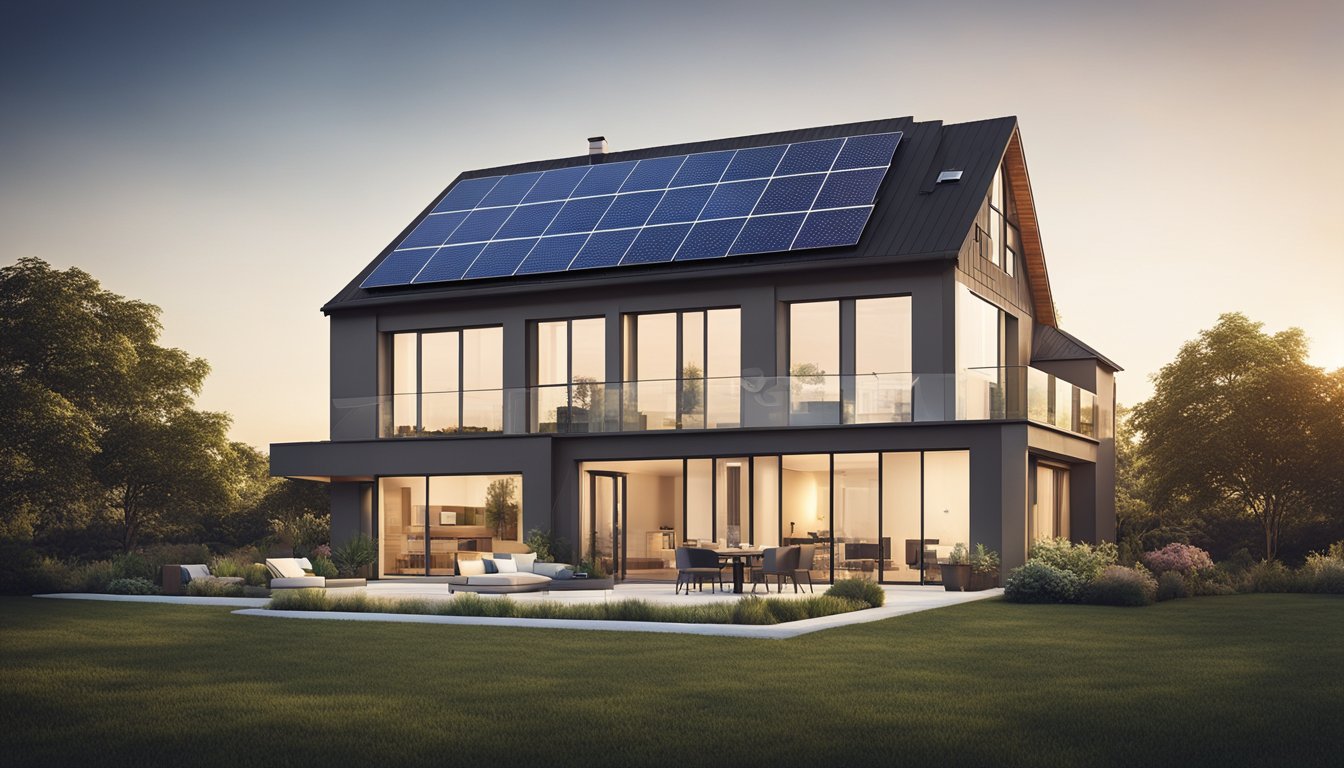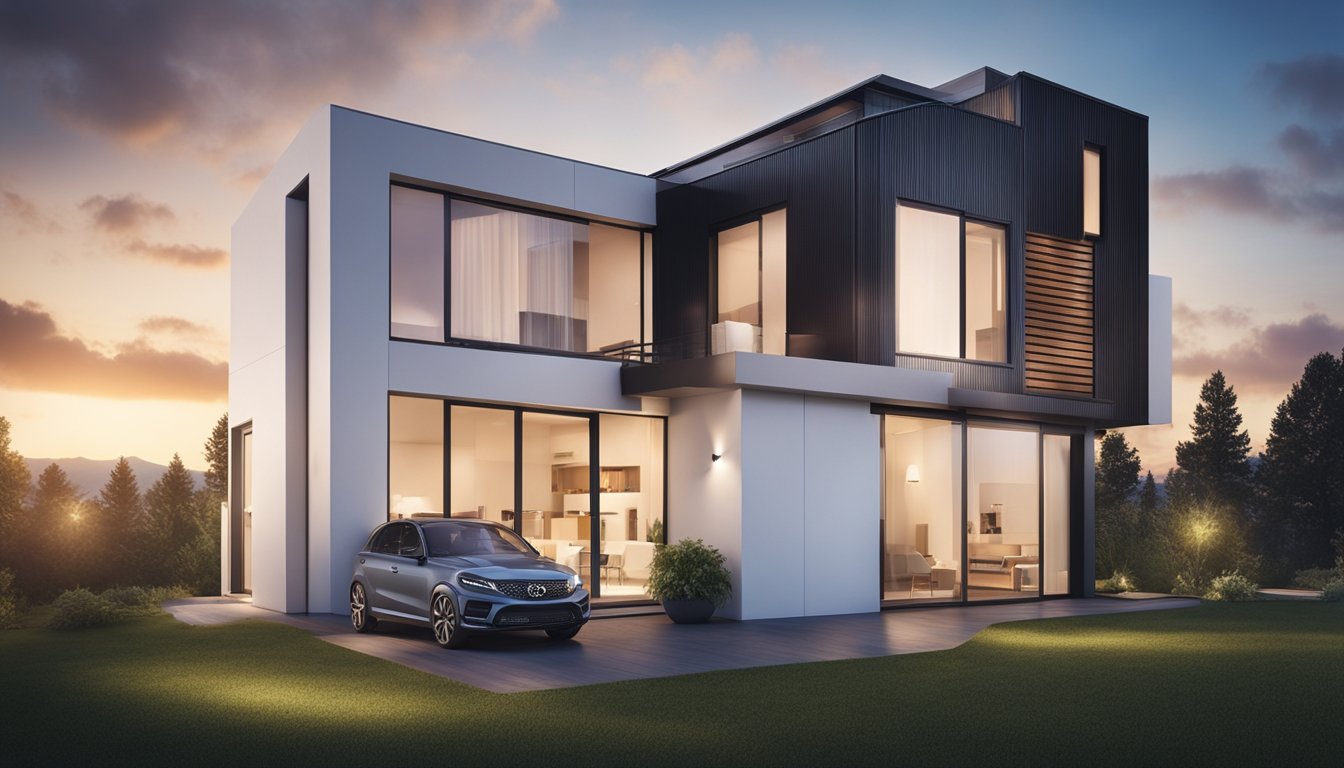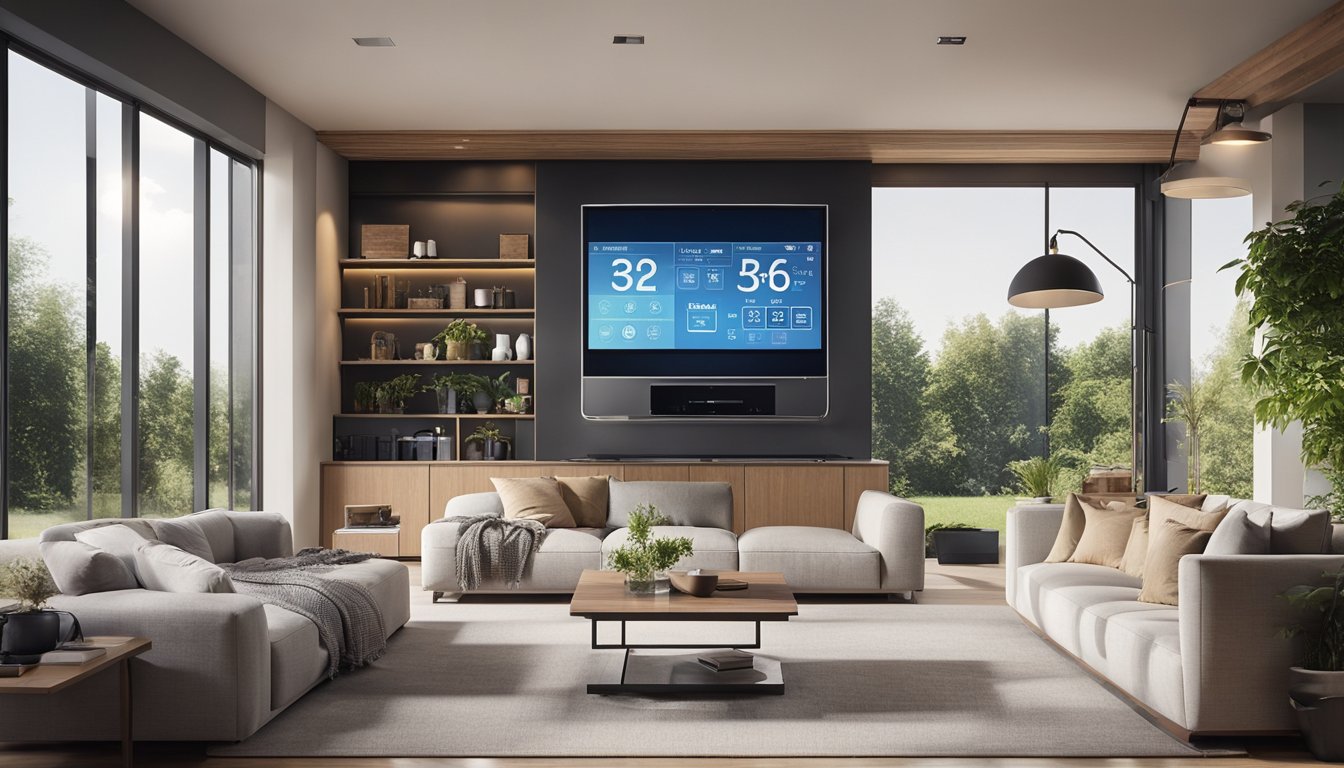Late updated: 20 Nov 2024 12:11
Written by: Daniel Harper
Innovative Ways To Improve Home Energy Efficiency: Smart Tips for Sustainable Living
In today's world, where climate change and sustainability are at the forefront, finding innovative ways to improve home energy efficiency has become paramount. With energy costs rising and the push for clean energy intensifying, many homeowners are searching for effective methods to reduce energy consumption. One of the most impactful approaches is upgrading your home’s insulation, allowing for better temperature regulation and reduced reliance on heating and cooling systems.

Beyond insulation, improving energy efficiency includes adopting energy-efficient heating and cooling systems, such as electric heat pumps, which provide both warmth and cooling with remarkable efficiency. Lighting also plays a crucial role; switching to LED bulbs can significantly decrease energy usage, all while providing better illumination and longevity compared to traditional lighting options.
As we explore these solutions, it’s important to tailor strategies to individual needs and home structures. Consulting professionals for personalised assessments ensures that each measure taken aligns with the specific demands of your household, paving the way for both immediate energy savings and long-term benefits.
Key Takeaways
- Insulation upgrades significantly improve energy efficiency.
- Efficient heating and cooling systems reduce energy usage.
- LED lighting lowers energy consumption effectively.
Assessing and Enhancing Home Insulation
Improving home energy efficiency through insulation involves understanding your current setup, upgrading materials for better thermal performance, and exploring innovative construction techniques. These steps are essential to reducing energy costs and improving overall comfort.
Conducting a Professional Energy Audit
A comprehensive assessment of a home’s energy efficiency can significantly aid in identifying insulation needs. We start by hiring a certified professional to conduct an energy audit. This audit often includes thermal imaging and blower door tests to identify air leaks and locate areas with inadequate insulation.
By evaluating the home's envelope performance, we create a tailored plan addressing specific needs. Incorporating this audit allows us to make informed decisions on where to apply improvements, leading to better use of resources and reduced energy costs.
Upgrading Insulation for Optimal Thermal Performance
Upgrading existing insulation is crucial for improving thermal performance. We look into options like spray foam, fibreglass, and cellulose materials, which offer varying benefits in terms of cost, installation complexity, and effectiveness. High-quality materials slow heat transfer and improve the home's ability to maintain a consistent temperature.
Consideration of regional climate conditions helps in selecting the right materials. Proper air sealing should accompany insulation updates to enhance overall effectiveness, ensuring that warm air does not escape during winter months and cool air stays in during the summer.
Implementing Advanced House Framing Techniques
Integrating advanced house framing techniques contributes significantly to a home's insulation effectiveness. One prevalent method is using techniques like optimum value engineering (OVE), which involves using fewer wood studs without compromising structural integrity. This reduction minimizes thermal bridging and enhances insulation capacity.
Additionally, double-stud walls and structural insulated panels (SIPs) are popular for providing extra space for insulation and limiting heat transfer. These methodologies help in creating a more energy-efficient building envelope, which translates to improved comfort and noticeable savings on energy costs over time. By leveraging these modern building strategies, we optimise the structural framework to better support enhanced insulation efforts.
Strategies for Efficient Heating, Cooling, and Lighting

Improving home energy efficiency involves selecting Energy Star certified appliances, adopting advanced water heating systems, and incorporating smart heating and cooling solutions. We can also benefit from installing energy-efficient windows and strategically upgrading lighting systems.
Choosing Energy Star Appliances and Lighting Solutions
Deploying Energy Star rated appliances is critical in diminishing energy consumption. These appliances meet specified efficiency guidelines, ensuring optimal energy conservation. For instance, selecting LED lighting offers a significant reduction in energy use compared to traditional bulbs. LEDs consume up to 75% less energy and can last up to 25 times longer, enhancing our home's energy efficiency while reducing electricity bills.
Listing advantages:
- Lower operational costs
- Enhanced performance and longevity
- Reduced environmental impact
Utilising such appliances and lighting solutions can significantly cut down on energy waste in our homes.
Opting for Efficient Water Heating Systems
Efficient water heating is essential for an energy-efficient home. Considering tankless water heaters or heat pump water heaters can reduce energy use substantially. These systems only heat water on demand, eliminating the energy waste typically associated with traditional storage water heaters.
Solar water heating systems offer an environmentally friendly alternative by harnessing solar energy. Implementing these systems can provide hot water at a lower cost while decreasing the home's carbon footprint.
Key considerations in system choice include:
- Initial cost versus long-term savings
- Installation requirements
- Climate suitability
Installing Energy-Efficient Windows, Doors, and Skylights
The right windows, doors, and skylights can greatly affect home energy efficiency. High-performance windows with low-emissivity coatings and appropriate ventilation systems minimise heat loss during winter and reduce heat gain during summer. This aids in maintaining a comfortable indoor temperature year-round.
Energy-efficient doors add to reducing drafts and improving insulation. When paired with well-placed skylights, they allow for natural lighting, mitigating the need for artificial illumination and further conserving energy.
Proper installation and use of these elements are crucial for optimal energy savings.
Upgrading to Smart Thermostats and HVAC Systems
Smart thermostats and advanced HVAC systems play an integral role in enhancing heating and cooling efficiency. By offering precise temperature control, these devices allow us to optimise our home's climate management, reducing unnecessary heating and cooling usage.
Smart thermostats learn our preferences and schedule, adjusting automatically for maximum energy efficiency. Efficient HVAC systems with modern technology, such as advanced ventilation and air conditioning, ensure better air quality and comfort at reduced energy expenditure.
Benefits include:
- Enhanced comfort levels
- Reduced energy costs
- Advanced system control and monitoring
Integrating these smart solutions can lead to a sustainable reduction in home energy consumption, enhancing overall efficiency.
Frequently Asked Questions

Improving home energy efficiency is essential for reducing costs and environmental impact. There are several strategies and improvements one can implement, from cost-effective actions to design considerations and understanding available tax incentives.
How can I enhance the energy efficiency of my abode without incurring substantial costs?
Simple measures such as replacing incandescent bulbs with LED lights and sealing gaps can significantly lower energy consumption. Regularly cleaning or replacing filters in appliances improves their efficiency. Washing clothes in cold water and using smart power strips can further reduce energy use without heavy expenditure.
What are the top ten home improvements to boost energy conservation?
Consider upgrading to energy-efficient appliances, installing solar panels, and adding insulation to walls and attic spaces. Double-glazed windows can reduce heating costs. Programmable thermostats, tankless water heaters, and draught-proofing doors enhance efficiency. LED lighting and low-flow water fixtures are beneficial as well.
In what ways can the design of a house contribute to better energy efficiency?
Thoughtful design choices like orientation towards the sun maximise passive solar gain. Overhangs and window shades regulate temperature, reducing reliance on heating or cooling systems. Open floor plans and high ceilings promote natural ventilation. Using sustainable materials also enhances energy conservation.
What types of tax incentives are available for making energy-saving home improvements?
Several governments offer tax incentives for energy-saving improvements. These may include credits for solar panel installation, insulation, and energy-efficient windows. Some schemes extend to heating and cooling systems or renewable energy sources, making such renovations more financially accessible.
Can you provide some examples of energy-efficient homes and their key features?
Energy-efficient homes often feature solar panels, geothermal heating, and triple-glazed windows. They incorporate thermal mass materials and use low-energy appliances. Open layouts that promote natural light and ventilation, coupled with energy recovery ventilation systems, are common to reduce energy usage.
What measures can be taken to improve the energy efficiency of existing home infrastructure?
Improving the energy efficiency of existing structures involves adding insulation and upgrading windows to reduce heat loss. Installing smart meters helps track energy consumption, encouraging more informed usage. Retrofitting older heating systems with energy-efficient models can also lead to substantial savings.
